Human Practices: Gold
Companies
Argonne National Laboratory
Our team contacted and discussed with Edward Barry, from Argonne National Laboratory. He helped us further understand how our project can be applied into the real world, and how we can potentially spread our project idea. His advice on how industry level research must meet high standards to pass into implementation was insightful and eye-opening, and his suggestions on how to contact other companies and laboratories to spread word of our project was crucial to helping us reach out beyond our comfort zone. Argonne itself is one of the nation's top research centers with a history dating back to the Manhattan Project in 1940, but their Oleo Sponge which was built to respond to oil spills caught our attention which spurred us to meet up and talk to them about their experiences. Their perspectives on how ideas are developed and then transformed into working products were valuable and helped us conceptualize the process of making our ideas into reality.
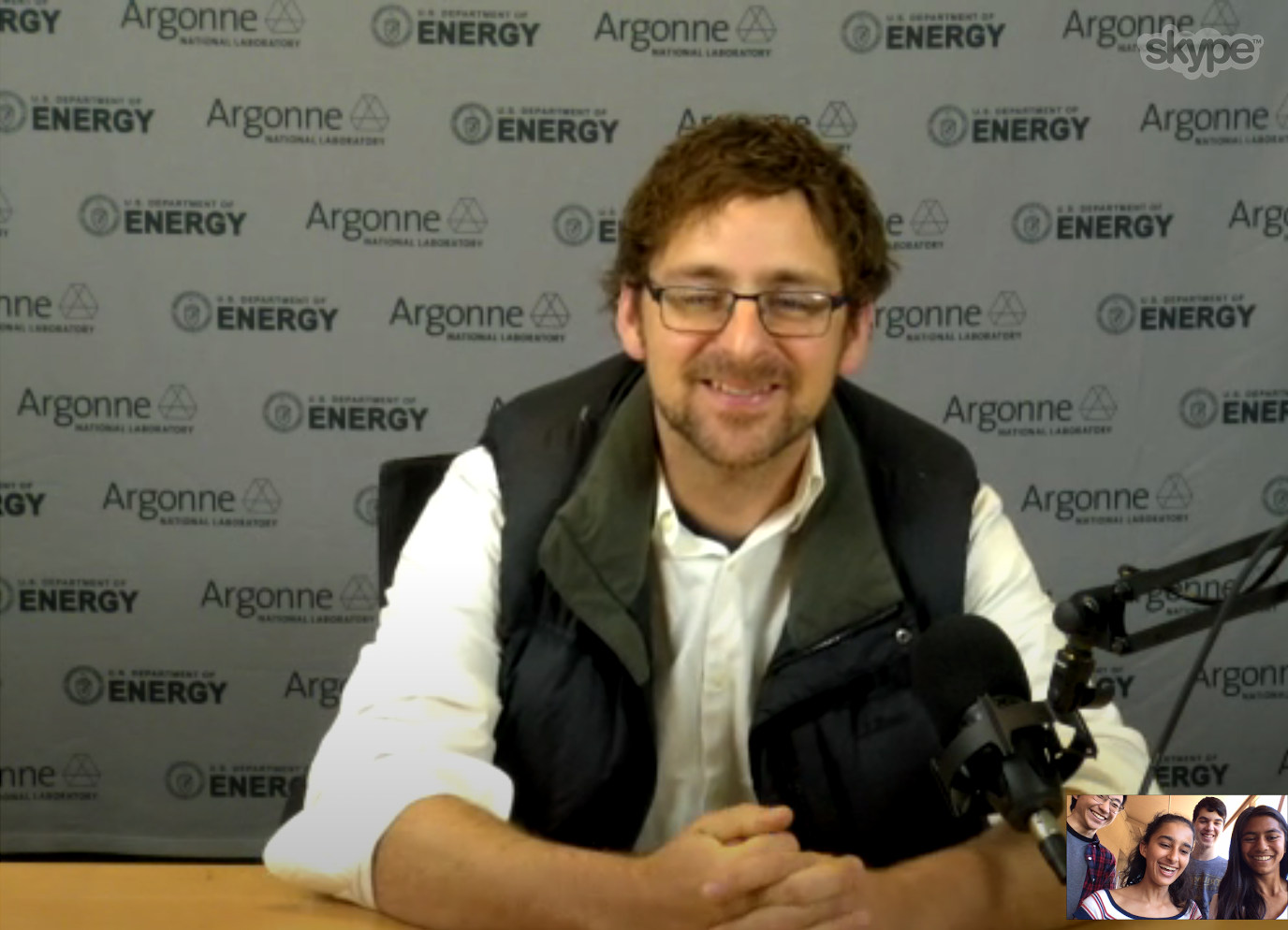
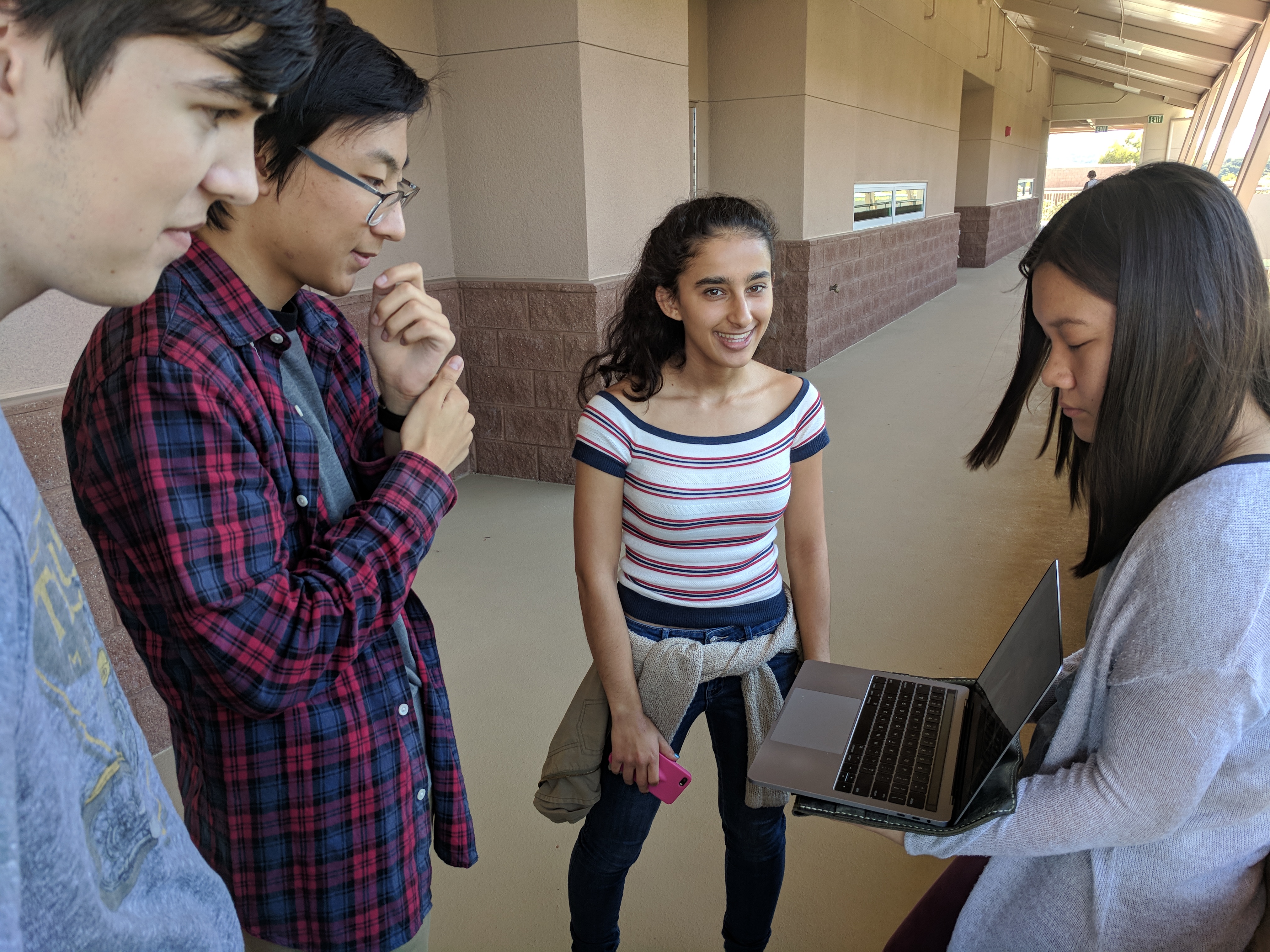
British Petroleum BioSciences Center
Our CCA iGEM team met and presented in front of scientists from the British Petroleum (BP) BioSciences Center. The scientists were kind enough to offer feedback and gave us some guidance on our project. The result of this human practice event was an increased awareness of our project around professional and highly recognized laboratories in San Diego.
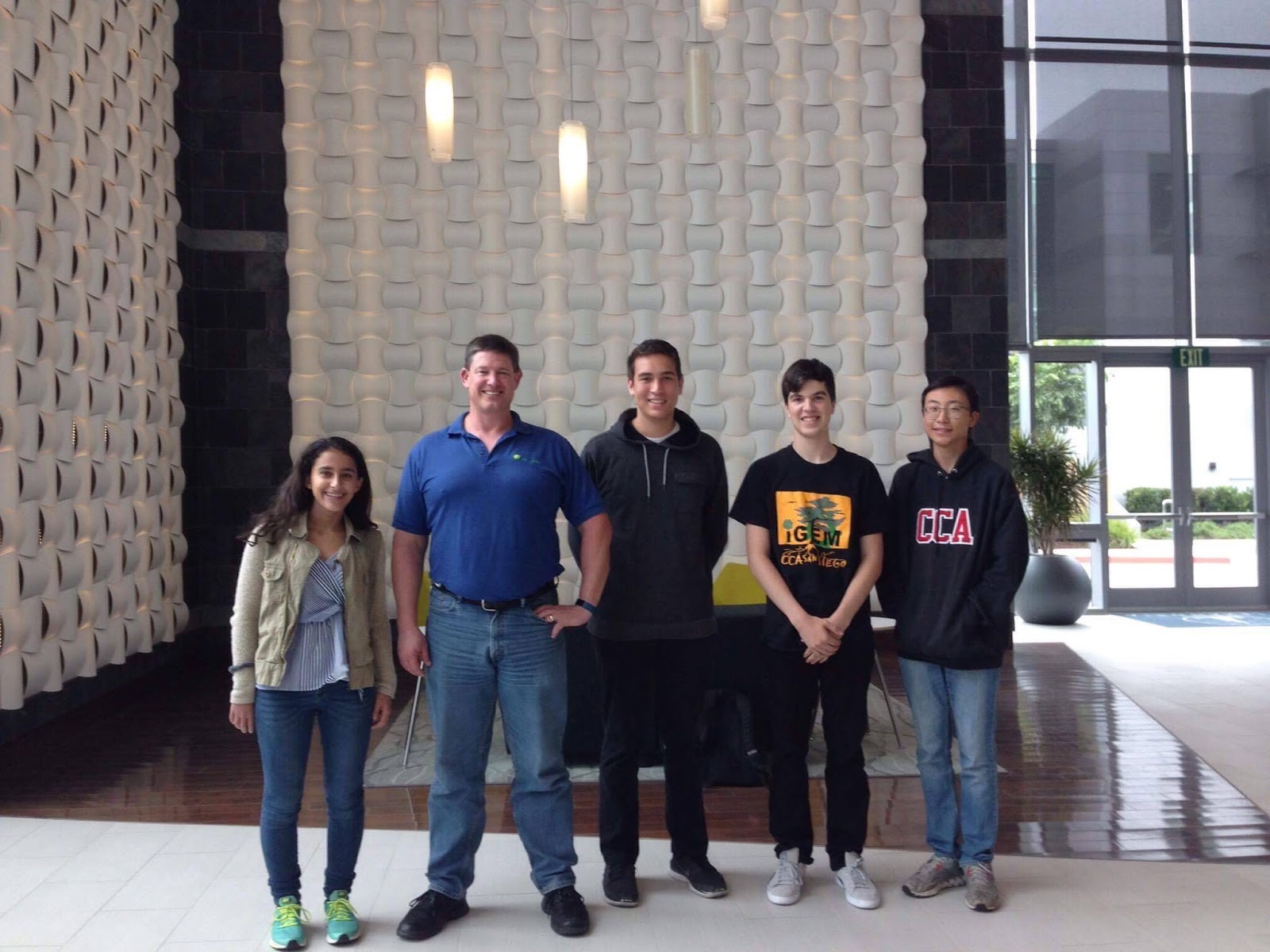
Synthetic Genomics
Our CCA iGEM team met up to discuss our project with scientists from Synthetic Genome, Inc. They went into detail on the similarities between our project and their work, and gave us advice on how to approach making our idea into a reality. We were also offered a tour of their facilities, which was very enlightening, as we caught a glimpse of their workplace and the type of research they were conducting. They were very enthusiastic in explaining the uses of various equipment and introducing us to their current work on creating biofuels from bacteria. The result of this human practice event was an increased awareness of our project and its relation to professional and highly recognized laboratories in San Diego and of its practicality in the real world.
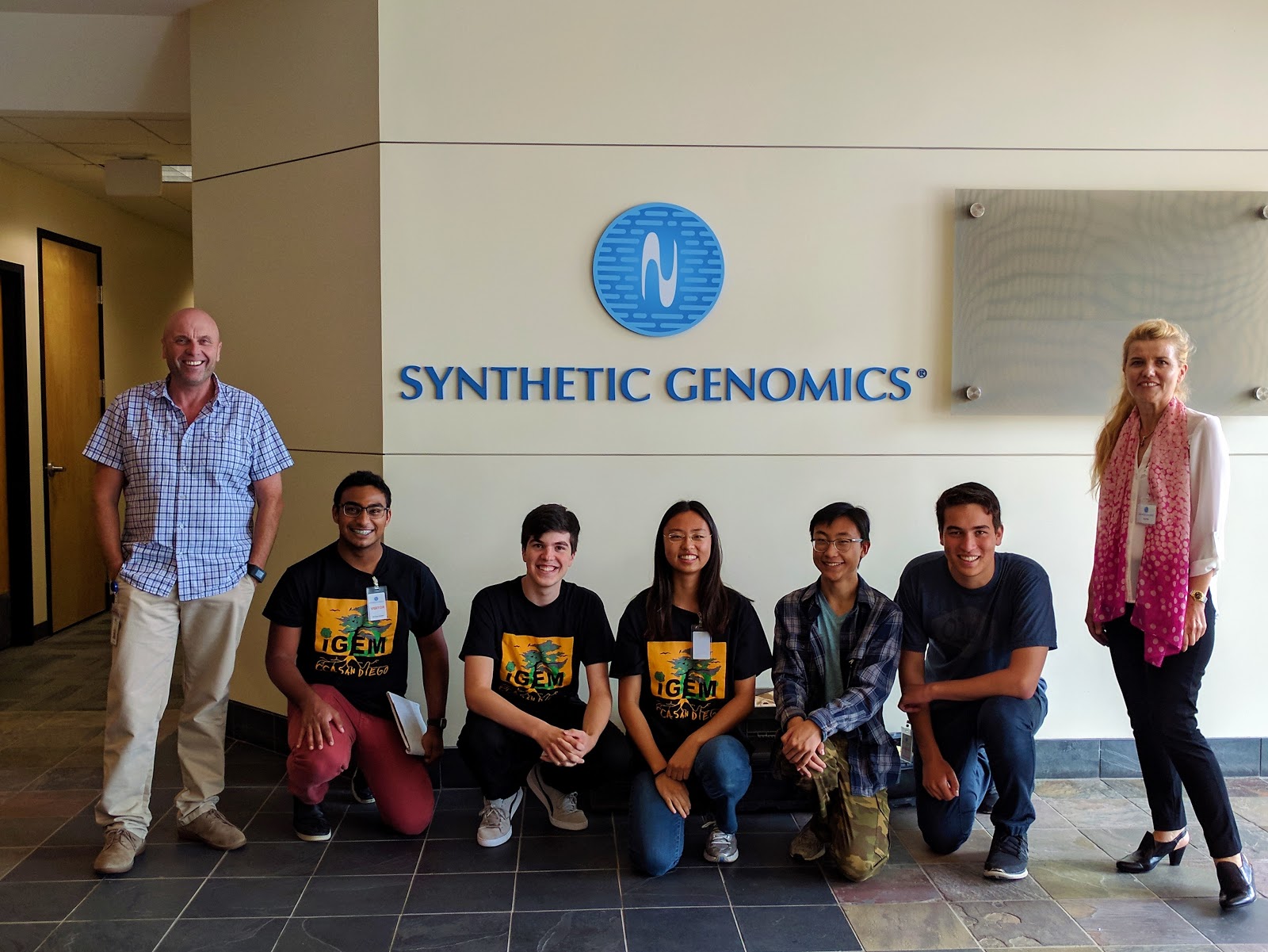
Roger Prince
Roger Prince is an expert in the oil remediation field who has won the prestigious North Jersey Section American Chemical Society Lifetime Achievement Award for his work in Exxon for a variety of project, notably in biological redox chemistry and biological energy systems with a focus on photosynthesis. Most importantly, he is the man who coined the term “bioremediation”, and his work in creating markers in the degradation pathways for hydrocarbons present in crude oil set the foundation for an entire field of biotechnology. He was the lead scientist at Exxon’s bioremediation monitoring team following the infamous Exxon-Valdez spill, which lead to the largest oil cleanup program in history. As the preeminent pioneer of bioremediation, his 300+ papers have been cited nearly 20,000 times, but his work giving lectures and seminars for the next generation of scientists allowed us to contact him and ask him to review our project, which he was keenly intrigued by. His insight into the mechanics of our degradation pathway and the bacteria we sourced the pathways from allowed us to mold our experiments into an effective and innovative tool for the field that he created. We are endlessly thankful for his mentorship and time.

British Petroleum
British petroleum was another lab that we were invited to visit to discuss how our project might be implemented and how research in the oil spill remediation sector is normally carried out. We held a meeting where we presented our findings and our ideas and bounced some questions off of the heads of some of the scientists in the San Diego division of BP. They explained how they had used very aggressive amounts of surfactants to disperse oil as it was released during the Deepwater Spill, which might be helpful to our project because it represents how a company might respond to a crisis at first, whereas our technology might be applied in later stages to help restore equilibrium to an environment. The BP scientists discussed testing of our project in great detail, explaining the pitfalls of PAH testing, as the compounds are often insoluble and dangerous. Overall, the scientists found our work interesting, and referred to the natural tendency of bacteria to flourish after the environmental shock of an oil spill, and citing our bacteria as a means of harnessing this capability.
iGEM Goes Green
We have participated in iGEM GOES GREEN to consider a more eco-friendly way to work in our lab in the environment, which centers around the idea of raising awareness around the environmental impacts we, especially as members of iGEM, have on the world around us and how we can lessen the negative side effects of those impacts. Namely, iGEM Goes Green is focused on spreading awareness on what our carbon footprint is. Our project is supposed to help clean the environment and we want to be effective in our lab methods to make sure that we keep the environment clean, while researching a way to save it! In one of our many contact points with them, we - along with our school’s Ecology Club - sent suggestions for their Go Green Guide, a document that outlines exactly how one can conduct a more eco-friendly lifestyle in and out of the laboratory. We detailed the impact of several other processes (that did not deal with the conventional tips) concerning greenhouse gas emissions. In addition, Eco Club helped by planting a tree on our campus for the purpose of slightly compensating for our carbon footprint created by our flights to Boston, as well as to establish our collaboration with TU Dresden.
Bioethics Seminar
Through a collaboration with Model UN, Conservatory for the Humanities, and Speech and Debate, we hosted a Bioethics Seminar to thoroughly investigate the ethical impacts of synthetic genetics on our society and the environment. Topics discussed included stem cells, cloning, CRISPR, and animal testing. The student-run bioethics seminar featured 4 guest speakers, all of whom are bioengineering professors at UCSD. Professors Bruce Wheeler, Peter Yingxiao Wang, Daniela Valdez-Jasso, and Gert Cauwenberghs spoke about careers and youth in bioengineering, molecular engineering, soft-tissue biomechanics, and neural computations, respectively.
STEM Days
We created public presentations such as multiple STEM days in order to inform the public of our project, as well as to educate kids on genetic processes and the importance of safety in lab work.
We took a public poll at one of the STEM days to see how effective our teachings and debates were on influencing the community around us.
iGEM Summer Camp
We have created two camps to educate students (1 week environmental-genetics as well as a physics and applied physics) on the science that is necessary to do effective and safe labwork, perform lab techniques safely, and apply concepts to understand the world around them. For more information on our camp, click here. Here are the lesson plans and advanced lab plans:
[INSERT LESSON PLANS]
Beach Cleanup
A group of our team members and friends went to the Torrey Pines Beach and spent an afternoon picking up trash in an effort to make our San Diegan even more beautiful and clean for the public. We obtained almost 100 pounds of trash and received compliments and questions about our iGEM team and the iGEM competition.
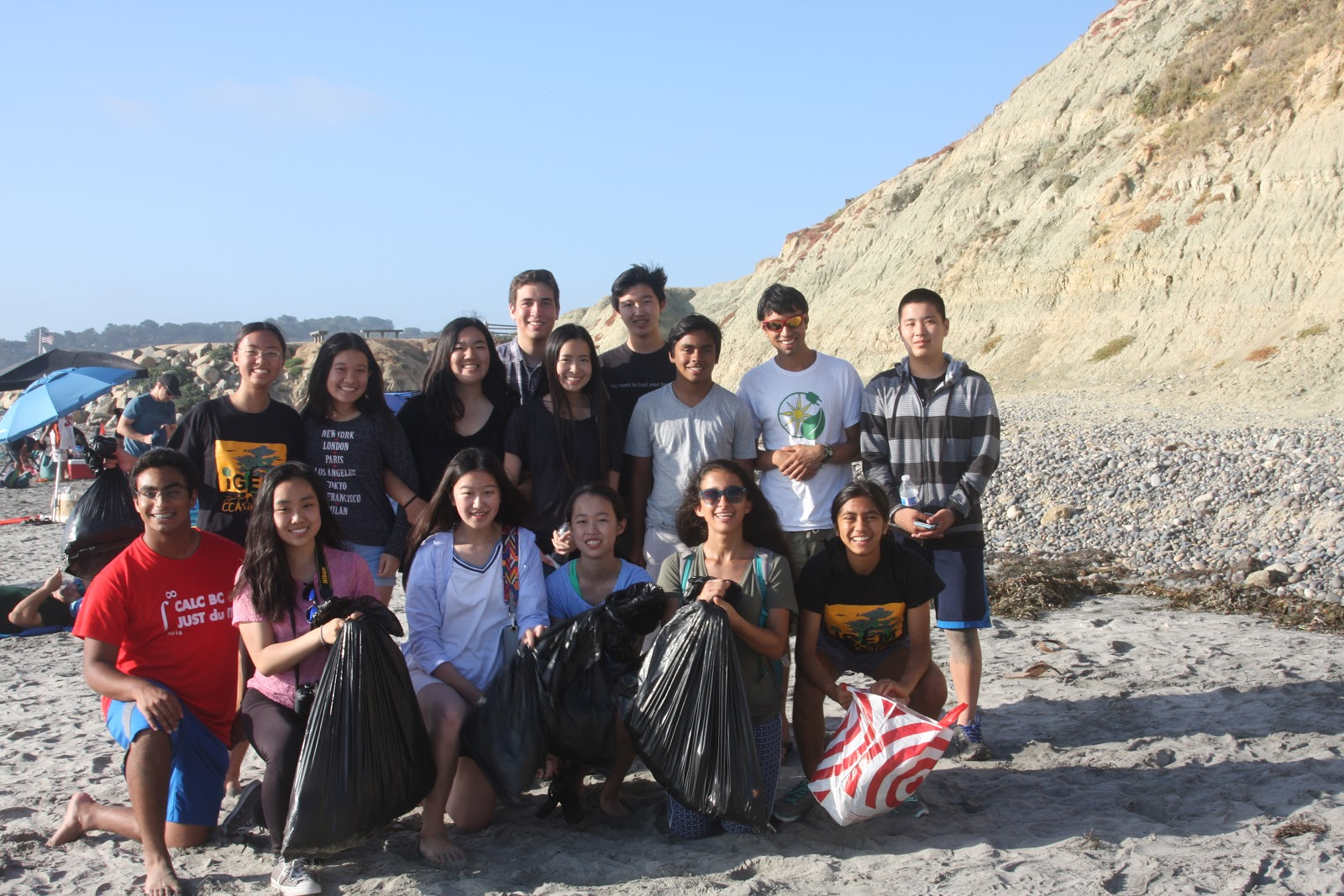
We took a public poll at one of the STEM days to see how effective our teachings and debates were on influencing the community around us.
[INSERT LESSON PLANS]




